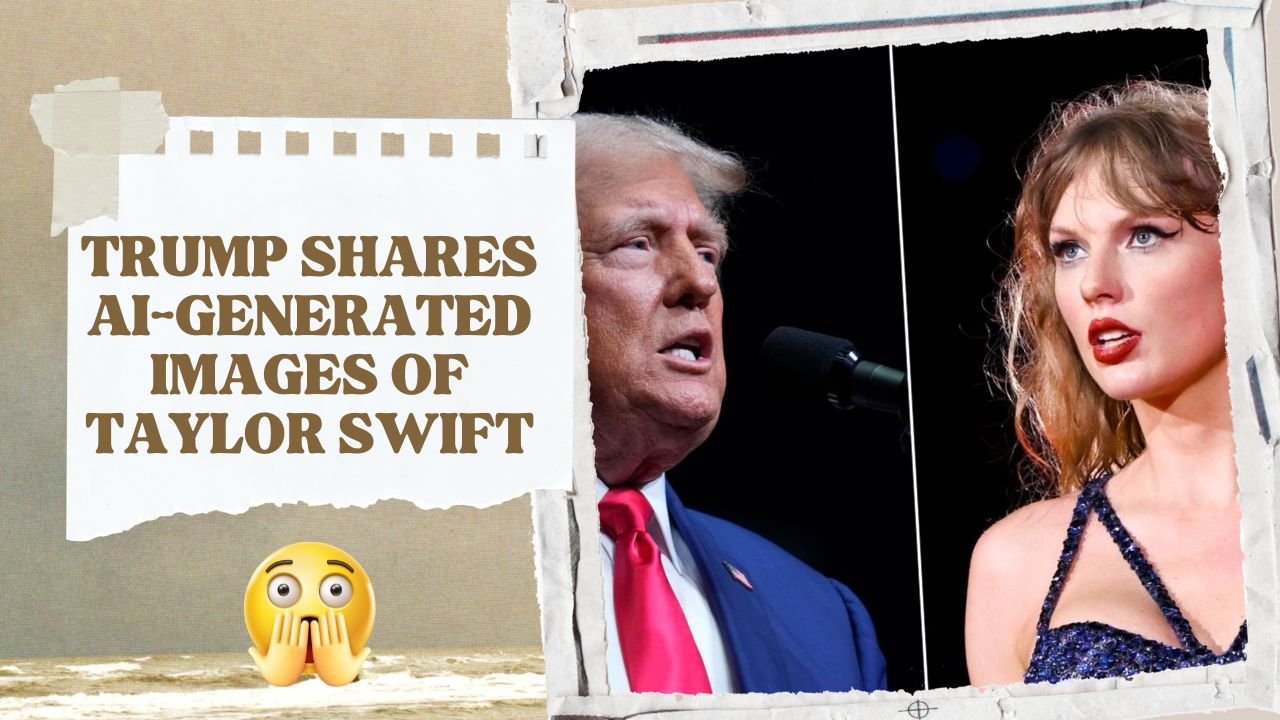In a recent development that has sent ripples through both the political and entertainment spheres, former President Donald Trump has found himself at the center of a controversy involving pop superstar Taylor Swift and artificial intelligence (AI) technology.
The Incident
Donald Trump recently shared AI-generated images of Taylor Swift on his social media platform, Truth Social. These images depicted Swift in a manner suggesting she was endorsing Trump’s presidential campaign. One image showed Swift styled as Uncle Sam with the provocative tagline “Taylor Wants You to Vote for Donald Trump.” Another promoted “Swifties for Trump” merchandise.
Trump’s Stance on AI
Ironically, this incident comes in the wake of Trump’s previously expressed concerns about the potential dangers of artificial intelligence. The former president has been vocal about the risks associated with AI technology in the past.
Legal Implications
When questioned about potential legal repercussions from Swift, who is known for vigorously protecting her image and brand, Trump claimed ignorance about the creation of the images. He stated, “I don’t know anything about them other than somebody else generated them.” Despite this claim, the images remained on his platform.
The situation has raised legal questions, particularly in light of Tennessee’s ELVIS Act. This legislation is designed to protect artists from unauthorized use of their likenesses, adding a layer of complexity to the issue of AI-generated content and its implications for personal rights and political discourse.
Swift’s Response
Taylor Swift wasted no time in responding to the unauthorized use of her image. Following a debate between Trump and Vice President Kamala Harris, Swift made a public announcement denouncing the AI-generated images and clarifying her political stance.
In a bold move, Swift announced her endorsement of Vice President Harris. She stated that her decision was motivated by the need to combat misinformation, particularly regarding the AI-generated images falsely portraying her support for Trump.
Swift emphasized the importance of transparency in her voting intentions and used the opportunity to encourage her followers to register to vote. This response not only addressed the immediate controversy but also highlighted Swift’s commitment to civic engagement.
Broader Implications
This incident underscores the growing concerns surrounding the use of AI in creating and disseminating potentially misleading content, especially in the political arena. It raises important questions about the responsibility of public figures and social media platforms in verifying the authenticity of shared content.
Moreover, it highlights the potential for AI technology to be misused in ways that could influence public opinion and potentially impact democratic processes. As AI continues to advance, the need for clear guidelines and ethical standards in its application becomes increasingly apparent.
Conclusion
As this story continues to unfold, it serves as a stark reminder of the complex intersection between technology, politics, and celebrity influence. The controversy not only impacts the individuals directly involved but also contributes to the ongoing dialogue about the role of AI in shaping public discourse and the importance of media literacy in the digital age.
The incident involving Trump, Swift, and AI-generated images is likely to fuel further discussions about the regulation of AI technology, the protection of personal image rights, and the responsibilities of public figures in the dissemination of information on social media platforms.

